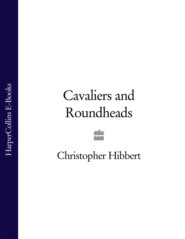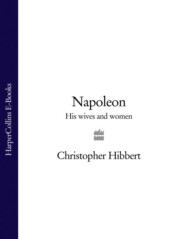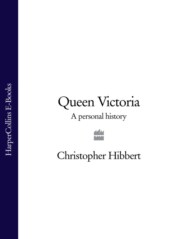По всем вопросам обращайтесь на: info@litportal.ru
(©) 2003-2025.
✖
Disraeli: A Personal History
Настройки чтения
Размер шрифта
Высота строк
Поля
Lord C.: He is a great agitator. Not that he troubles us much now. He is never amongst us now. I believe he has gone abroad again.
Lady C., literatim: You old fool! Why, he sent me this book this morning. You need not look at it; you can’t understand it. It is the finest book ever written. Gone abroad, indeed! Why, he is the best ton in London! There is not a party that goes down without him. The Duchess of Hamilton says there is nothing like him. Lady Lonsdale would give her head and shoulders for him. He would not dine at your house if you were to ask him. He does not care for people because they are lords; he must have fashion, or beauty, or wit, or something: and you are a very good sort of person, but you are nothing more.
The old Lord took it very good-humouredly, and laughed. Lady Cork has read every line of the new book. I don’t doubt the sincerity of her admiration, for she has laid out 17s. in crimson velvet, and her maid is binding it…
(#litres_trial_promo)
Soon after this letter was written Disraeli joined ‘a water party…almost the only party of pleasure that ever turned out to be pleasant…The day was beautiful…We sailed up to Greenwich…We had a magnificent banquet on deck, and had nothing from shore except whitebait piping hot…I never knew a more agreeable day, and never drank so much champagne in my life.’
A few weeks later Disraeli was back at Bradenham and soon picked up his pen to continue the notes which he did not choose to describe as a diary: ‘What a vast number of extraordinary characters have passed before me or with whom I have become acquainted. Interviews with O’Connell, Beckford and Lord Durham…I have become very popular with the dandies. D’Orsay took a fancy to me, and they take their tone from him. Lady Blessington is their muse and she declared violently in my favour…I am as popular with first-rate men as I am hated by the second-rate.’
(#litres_trial_promo) He could scarcely include the Duke of Wellington among the first-rate men with whom he was popular, but he did meet him, so he said, at Lady Cork’s ‘wearing his blue ribbon [as a Knight of the Order of Garter] on the eve of the day Lord Grey resigned [8 July 1834]. “He always wears his blue ribbon when mischief is going on,” whispered Ossulston to me.’
As for enemies in his account of second-rate men, Disraeli mentions only one – Samuel Rogers: ‘Considering his age I endeavour to conciliate him, but it is impossible. I think I will give him cause to hate me.’
(#litres_trial_promo)
Among the first-rate men with whom he was popular, he did not mention Bulwer, whose place in his affection had been taken by D’Orsay, who, so he told Lady Blessington, would be very welcome if he cared to come down to Bradenham for a few days. ‘I suppose it is vain to hope to see my dear D’Orsay here,’ he wrote to her. ‘I wish indeed he would come. Here is a cook by no means contemptible. He can bring his horses if he likes, but I can mount him. Adieu, Lady Blessington, some day I will try to write you a more amusing letter; at present I am in truth ill and sad.’
Later that year he told Benjamin Austen that, for ‘exactly two months’, since 24 August, he had been suffering from a ‘strange illness’ that kept him to his sofa – ‘great pain in the legs and extraordinary languor’.
‘It came upon me suddenly,’ he reported. ‘I struggled against it for some time, but mounting my horse one day, I had a slight determination of blood to my head and was obliged to throw myself to the ground. This frightened me, remembering old sufferings, and I laid up. Quiet, diet and plenteous doses of ammonia (heavenly maid) not only restored me, but I felt better and more hearty this last fortnight than I long remember.’
(#litres_trial_promo)
8 AFFAIRS (#ulink_8460a00f-0038-5f91-aebd-4f973dcb3a2a)
‘I may commit many follies in life, but I never intend to marry for “love”.’
EARLIER THAT YEAR, IN FEBRUARY 1834, while staying at The Grange, Southend, Disraeli had made one of his rare excursions into the hunting field.
‘I hunted the other day with Sir Henry Smythe’s hounds,’ he told his sister with characteristic and not altogether mocking self-congratulation, ‘and although not in scarlet was the best mounted man in the field…I stopped at nothing. I gained great kudos, having nearly killed an Arabian mare in a run of 30 miles.’
(#litres_trial_promo)
(#litres_trial_promo)
This Arabian mare belonged to Henrietta, Lady Sykes, with whom he had been much taken when he had met her in a box at the opera on 18 May 1833. Also in the box was Lady Charlotte Bertie, the twenty-one-year-old daughter of the Earl of Lindsay, who noted in her diary that Disraeli was ‘wild, enthusiastic and very poetical…The brilliance of my companion affected me and we ran on about poetry and Venice and Baghdad and Damascus and my eye lit up and my cheek burned.’
(#litres_trial_promo)
Disraeli was clearly attracted to this young woman and, a few days later, asked his sister if she would like her as a sister-in-law. She was, he said, ‘very clever, [had] £25,000, and [was] domestic. As for “love” and beauty all my friends who married for love and beauty either beat their wives or live apart from them. This is literally the case. I may commit many follies in life, but I never intend to marry for “love”, which I am sure is a guarantee of infidelity.’
(#litres_trial_promo)
Sarah did not like the idea of Lady Charlotte as a sister-in-law and thought it unlikely that she had as much money as her brother supposed. She suggested that he should make another proposal to William Meredith’s sister, Ellen, whom he had already asked and by whom he had been refused.
For the moment, however, while looking about for a suitable wife, Disraeli was content to have a married woman as a mistress; and his family supposed that he had found such a mistress in Clara Bolton, the wife of his doctor, George Buckley Bolton.
Mrs Bolton was another woman whom Sarah did not care for. Nor did other women who knew her, for she was considered socially pretentious, conceited, devious and unprincipled, though by no means stupid, while her husband, the doctor, was ill-bred, cocky and, it was supposed, as a mari complaisant, not above accepting money from his wife’s admirers. These admirers, so Clara Bolton was anxious to assure Disraeli, were many and diverse, not a ‘formal set’, she told him, listing their names. ‘I give them nothing to do,’ she said, ‘& nothing to eat and yet they come.’ Disraeli often went. ‘We all agree,’ he said, ‘it’s better than a club.’
The other woman, Henrietta Sykes, who was in the box at the theatre with Lady Charlotte Bertie, was the wife of Sir Francis Sykes, the third baronet, owner of Basildon Park in Berkshire as well as a town house in Upper Grosvenor Street. His grandfather had become extremely rich in the service of the East India Company; his father, a Member of Parliament, had married a daughter of the first Lord Henniker. His wife was the daughter of Henry Villebois of Martham Hall, Norfolk, also a rich man, a partner in the brewery firm of Truman and Hanbury. Lady Sykes herself, according to her friend, Lady Charlotte Bertie, was ‘a fine woman and very pleasant and good-natured’. She was also extremely pretty, wilful, impetuous, sensual and susceptible. She had four young children.
The prospect of meeting this woman, with whom her brother had soon fallen in love, elicited a worried letter from Sarah Disraeli when her brother proposed bringing her down to Bradenham:
I am so afraid it will rain & then Lady Sykes will die of ennui, for how can we amuse her of an evening as it is, & then the long mornings too. She will hate us. Let us know as well as you can what établissement travels with her…
Send the claret directly as we want that at any rate & it will not be good if it have not time to settle…I write in the greatest haste
(#litres_trial_promo)…I am somewhat nervous at the idea of entertaining our visitors whose tastes I cannot even guess at.
(#litres_trial_promo)
The next day Disraeli replied:
I received yours this morning. We come on Saturday but at what hour very doubtful. I sho[uld] think about 3. Lady Sykes will venture to bring her only daughter [Eva] aged three. But no nurserymaid. I assured her my mother wo[uld] not disapprove of a pretty child. For the rest her page and soubrette, [Isabella Margaret] Munro…I shall send my groom with my horse in Munro’s gig. Be not alarmed about amusement; our guests are indolent and loungy.
(#litres_trial_promo)
Sarah need not have been so worried. Apparently the visit was not such a strain as she had feared it might be; and, when Lady Sykes and her lover returned to London, they were evidently more deeply in love than ever. She wrote him a series of passionate letters assuring him of her devotion, telling him how much she missed him when he left her, how she could not restrain her tears. ‘If you knew how desolate this house is – your white stick on the sopha, a ghost of departed joy…’
It is the night Dearest the night that we used to pass so happily together…I cannot sleep. I love you…I love you indeed I do…The dear head, is it better? That it were pillowed on my bosom for ever. I would be such an affectionate old Nurse to my child and kiss and soothe every pain…Good Angels guard my dearest. A thousand and a thousand kisses – Good night. Sleep and dream of – your Mother.
(#litres_trial_promo)Love me, my Soul, love me and be assured that the measure of my idolatry for you is full to the brim [she wrote in another letter]. Every breath I draw is yours, even now your kisses live on my lips and face and I feel the passion of your embrace…Best beloved, do you love me? Do you indeed? How often have I asked you that question, how often been soothed by your assurance of devotion to me. I do not doubt you, oh no, I dare not – it would drive me mad.
(#litres_trial_promo)
When Sir Francis heard of his wife’s affair with Disraeli – being told of it, Lady Sykes supposed, by Mrs Bolton, with whom Sir Francis himself was by now having an affair – he forbade his wife ever to see Disraeli again.
Lady Sykes had no doubt as to how to deal with her husband and the woman she called ‘Madame’. She stormed round to Mrs Bolton’s house, where she found her husband’s carriage waiting in the street outside. ‘I walked in [she told Disraeli] sans knocking and up to the drawing room sans being announced. Fancy their consternation. I really thought Francis would have fainted.’
‘We are victorious,’ she closed her version of this encounter. ‘Madame cried and wrung her hands. F[rancis] cried and begged me to be merciful. I did not cry and had apologies from both.’
Mrs Bolton, who had once, so she said, received letters from Disraeli, protesting ‘undying, unspeakable, obligation’, now told Lady Sykes that she had heard on excellent authority that no one would visit her any more and that Disraeli himself would leave her. ‘Indeed, he has left you already,’ she said, ‘I know him well. He is everywhere despised.’
Ignoring such outbursts from Mrs Bolton, Henrietta Sykes agreed to go for a few days with her husband to France, whence she wrote to Disraeli: ‘Think of the happy ten minutes on the sopha…and how delicious would be…the happiness of returning to the peaceful cot and reposing in each other’s arms. It would be bliss, bliss beyond compare, and hope whispers it will be realized – most idolized, I love you, I adore you, I worship you with fond idolatry.’
(#litres_trial_promo)
On her return from the Continent, Disraeli left Bradenham almost immediately to see Henrietta again; and one day in London her father saw them together in the street and walked past, ignoring them: a slight which, in their absorption with each other, they did not notice. Mr Villebois, however, instructed one of Henrietta’s sisters to let her know that he would continue to ignore them until their intimacy ceased. His heart was ‘almost broken’ by the scandal, he said; and he trusted that she would end the disgraceful relationship.
‘I wrote back’, Henrietta told her lover, ‘to say…I was agonized by his displeasure but so long as Francis allowed me your society I should enjoy it.’
(#litres_trial_promo)
The scandal which so distressed Mr Villebois was exacerbated when Disraeli accepted an invitation to stay with the Sykeses at Southend – where they had taken a house, Poulter’s Grange – Sir Francis having invited him on the implied condition that the Boltons were to stay there too. ‘I think…you will like the quiet of this place,’ Henrietta wrote. ‘The greatest drawback will be the damnable Boltons. They poison love, my greatest scource of enjoyment.’
(#litres_trial_promo)









